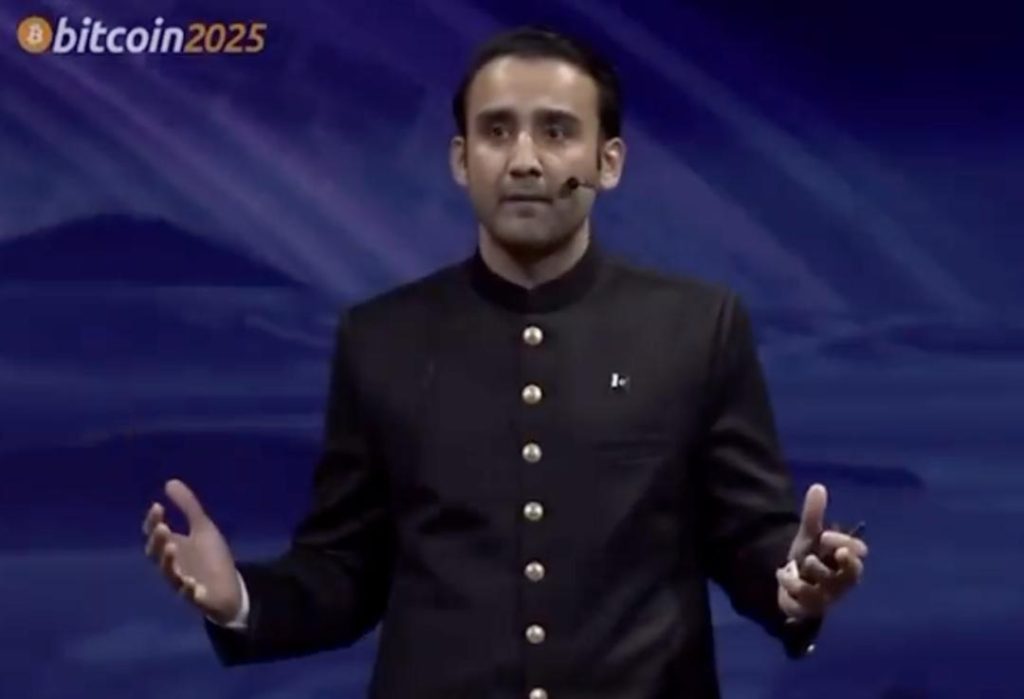
Pak & Bitcoin Suffer from Bad PR: CEO of Pak Crypto Body Linked to Trump-Backed Firm
In a recent interview, Bilal bin Saqib, the CEO of the Pakistan Crypto Council, stirred up controversy by stating that Pakistan and Bitcoin have both “suffered from bad PR”. His comments come at a time when Pakistan’s cryptocurrency watchdog, the Securities and Exchange Commission of Pakistan (SECP), is under scrutiny for its deal with World Liberty Financial, a firm backed by US President Donald Trump.
In an effort to rectify the situation, Saqib claimed that Pakistan has been “misrepresented” by the media, with people viewing the country through the lens of conflict and terrorism. He argued that this negative perception has had a ripple effect on the country’s reputation, affecting even its cryptocurrency sector.
Saqib’s comments are likely a response to the recent backlash faced by the SECP and World Liberty Financial. The latter, a financial services company, has been embroiled in a Senate inquiry in the US over its deal with the Pakistani watchdog. The inquiry is focused on whether the company has been unfairly profiting from its partnership with the SECP.
World Liberty Financial has been accused of using its ties with the Pakistani government to gain an unfair advantage in the cryptocurrency market. The company has denied any wrongdoing, but the controversy has raised concerns about the lack of transparency in Pakistan’s cryptocurrency regulations.
Saqib’s claim that Pakistan has been “misrepresented” by the media is not entirely unfounded. The country has faced significant challenges in recent years, including a crippling economic crisis, terrorism, and political instability. These issues have been widely reported in the international media, often painting a negative picture of Pakistan.
However, it is unclear whether Saqib’s comments are an attempt to whitewash Pakistan’s image or genuinely address the country’s PR challenges. The Pakistan Crypto Council has been accused of being close to the government, and some have raised concerns about the potential for conflict of interest in the country’s cryptocurrency regulations.
Pakistan has been making efforts to develop its cryptocurrency sector in recent years. The SECP has been issuing licenses to cryptocurrency exchanges and other companies, and the country has been exploring the potential of blockchain technology in various industries.
However, the sector has faced significant challenges, including a lack of transparency and regulatory clarity. The SECP has been criticized for its handling of cryptocurrency regulations, with some arguing that the watchdog has been too slow to adapt to the rapidly changing landscape.
The controversy surrounding World Liberty Financial and the SECP has raised concerns about the potential for corruption and conflict of interest in Pakistan’s cryptocurrency sector. The country’s reputation has already taken a hit, and the ongoing Senate inquiry in the US is likely to further damage its image.
In the face of these challenges, Saqib’s comments may be seen as an attempt to shift the focus away from Pakistan’s reputation and onto the country’s potential as a hub for cryptocurrency innovation. However, until the country’s regulatory bodies can demonstrate greater transparency and accountability, it is unlikely that Pakistan’s cryptocurrency sector will be able to shake off its negative reputation.
In conclusion, Bilal bin Saqib’s comments about Pakistan and Bitcoin suffering from bad PR have sparked controversy and raised questions about the country’s cryptocurrency sector. While Pakistan has the potential to develop a thriving cryptocurrency industry, it must first address its reputation and regulatory issues. Only then can the country truly capitalize on its potential and become a major player in the global cryptocurrency market.






